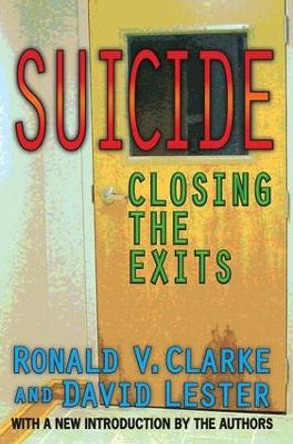Given that the war on terror is currently being fought the way crime typically is-after the fact-this country cannot protect its citizens from future terrorist events solely in this way. Instead, measures must be taken to actually stop terrorists before they can attack. Here, the authors argue that government anti-terrorism policy must pay much more attention to reducing opportunities for terrorist attacks by protecting vulnerable targets, controlling the tools and weapons used by terrorists, and removing the conditions of everyday life that make these attacks possible. While some of this work is being done on an ad hoc basis, there are no recognized methods to guide the work, there is limited experience on which to draw, and the government has no trained professionals to oversee the work. In this book, the authors address these deficiencies, and lay out a systematic approach for reducing opportunities for terrorism. The current take-them-out mindset may be the main reason why reducing opportunities for terrorism has been so neglected by governments, but another important reason is that the task seems so overwhelmingly difficult. How can we possibly protect every vulnerable target or person? How can we control all the everyday tools that terrorists must use in carrying out their attacks? How can we control their weapons when we cannot even keep guns out the hands of ordinary criminals? In this book, the authors show that these tasks are indeed manageable. They take readers through the methods for preventing terrorism and the policies that will assist in this important work. They show that in order to protect the country from terrorists, security forces must do what the terrorists do: identify vulnerable targets, analyze their specific weaknesses, consider the tools and weapons needed to attack, and assess access to the targets. Once these steps are taken, security agencies can then provide appropriate protection, limit accessibility, anticipate the forces needed to combat a potential attack, and plan carefully for an attack if it does occur. By outsmarting the terrorists security forces undertake the same analysis of vulnerabilities and opportunities that terrorists themselves undertake in planning their operations, and can more effectively defeat them before they strike. This books shows how this approach works and can succeed.
Offers a new and innovative method for combatting terrorism before it happens.About the AuthorRonald V. Clarke is Professor of Criminal Justice at Rutgers University. He is the author of
Superhighway Robbery: Preventing Ecommerce Crime and
Suicide: Closing the Exits among other titles. He is the editor of
Designing out Crime from Products and Systems and
Understanding and Preventing Car Theft and several other titles. He is Associate Director at the Center for Problem Oriented Policing (popcenter.org).
Graeme R. Newman is Distinguished Teaching Professor of Criminal Justice at the State University of New York at Albany (SUNY). He has written several books for the U.S. Department of Justice, and is the co-author of
Superhighway Robbery: Preventing Ecommerce Crime,
Designing out Crime from Products and Systems, and other titles. He is Vice President of the Center for Problem Oriented Policing (popcenter.org)
ReviewsCriminal justice professors Clarke and Newman present a systematic approach that security agencies can use to fight terrorism. The focus is on identifying opportunities for attacks and then blocking or removing them before terrorists can strike. The authors, who are affiliated with the Center for Problem Oriented Policing, also offer suggestions for developing a more rational and effective homeland security policy in the U.S. * Reference & Research Book News *
Book InformationISBN 9780275992309
Author Ronald V. ClarkeFormat Hardback
Page Count 316
Imprint Praeger Publishers IncPublisher Bloomsbury Publishing Plc
Weight(grams) 624g





